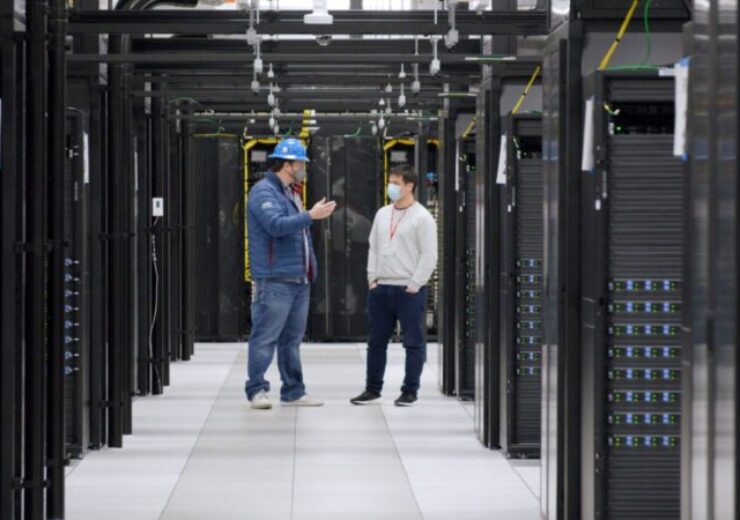Expected to be fully built out in mid-2022, the AI Research SuperCluster will help the firm’s AI researchers build better AI models

The RSC supercomputer is expected to be fully built out by Meta in mid-2022. (Credit: Meta)
Meta has unveiled a next generation artificial intelligence (AI) supercomputer called AI Research SuperCluster (RSC), which is expected to help the company expedite AI research as well as in preparing it for the metaverse.
The social technology company claims the machine to be among the fastest AI supercomputers that are in operation as of today.
Currently, the RSC is made up of 760 NVIDIA DGX A100 systems as its compute nodes, for a total of 6,080 graphics processing units (GPUs). The company claimed that each of the A100 GPUs is more powerful than the V100 used in its previous system.
During this year, the company expects to work to ramp up the number of GPUs to 16,000 in order to boost AI training performance by more than 2.5x.
Meta revealed that all the DGX systems in the supercomputer communicate through an NVIDIA Quantum 1600 Gb/s InfiniBand two-level Clos fabric which has no oversubscription. The storage tier of the RSC has 175 petabytes of Pure Storage FlashArray, cache storage of 46 petabytes in Penguin Computing Altus systems, and 10 petabytes of Pure Storage FlashBlade.
Expected to be fully built out in mid-2022, the RSC will help the firm’s AI researchers build better AI models. According to Meta, the models will be able to learn from trillions of examples, analyse text, images and video together, work across hundreds of different languages, and build new augmented reality tools among others.
The company hopes that eventually, the work done with the new supercomputer will pave the way forward for developing technologies for the metaverse, where AI-driven applications and products will have a key role.
Meta stated: “To fully realise the benefits of advanced AI, various domains, whether vision, speech, language, will require training increasingly large and complex models, especially for critical use cases like identifying harmful content. In early 2020, we decided the best way to accelerate progress was to design a new computing infrastructure — RSC.”
Using RSC, Meta hopes to more quickly train models that utilise multimodal signals to determine if an action, sound, or image is harmful or not. The company said that this research will help keep people safe on its current services as well as in the future when the metaverse is in use.


